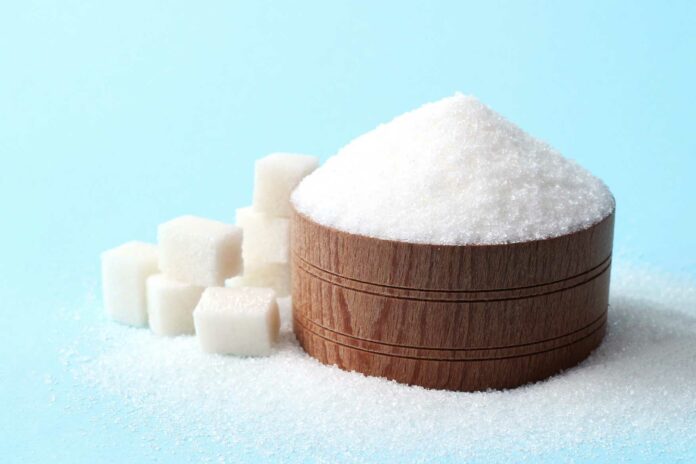To better understand how sweeteners affect hunger and hormone responses when used in place of sugar in foods with reduced or no added sugar, researchers from the University of Leeds recently examined the short-term (one day) and long-term (two weeks daily) effects of sweeteners compared to sugar in biscuits with fruit filling on appetite and hormone responses in adults who are overweight or obese.
They found that replacing sugar with artificial and natural sweeteners in foods does not make people hungrier. The study also suggests that it helps reduce blood sugar levels.
In a recent double-blind, randomized controlled experiment, researchers found that eating sweeteners had a similar effect on lowering appetite and related hormone responses as eating sugary foods. Additionally, they discovered that sweeteners might drop blood sugar, which is advantageous for those at risk of type 2 diabetes.
Using sweeteners in food instead of sugar has generated debate because of differing findings regarding how they affect hunger. Previous studies didn’t provide strong evidence.
Nonetheless, this study—which is regarded as the gold standard in scientific research—provides compelling proof that sweeteners can help lower sugar intake and have no adverse effects on hunger.
Lead author Catherine Gibbons, Associate Professor at the University of LeeLeeds’hool of Psychology, said: “Reducing sugar consumption has become a critical public health target in the fight to reduce the rising burden of obesity-related metabolic diseases such as type 2 diabetes.
“Simply restricting sugar from foods without substitution may negatively impact its taste or increase sweet cravings, resulting in difficulties sticking to a low-sugar diet. Replacing sugars with sweeteners and sweetness enhancers in food products is one of the most widely used dietary and food manufacturing strategies to reduce sugar intake and improve the nutritional profile of commercial foods and beverages.”
Principal investigator Graham Finlayson, Professor of Psychobiology at the University of LeeLeeds’hool of Psychology, said: “The use of sweeteners and sweetness enhancers has received a lot of negative attention, including high-profile publications linking their consumption with impaired glycaemic response, toxicological damage to DNA, and increased risk of heart attack and stroke. These reports contribute to the current befuddlement concerning the safety of sweeteners and sweetness enhancers among the general public, especially people at risk of metabolic diseases.”
“Our study provides crucial evidence supporting the day-to-day use of sweeteners and sweetness enhancers for body weight and blood sugar control.”
“This is the first study of its kind, which looked at the effects of consuming biscuits containing either sugar or two types of food sweetener: natural sugar substitute Stevia or artificial sweetener Neotame on 53 adult men and women with overweight or obesity.”
Up until now, the majority of research on sweeteners and how they affect blood sugar and hunger has been done on beverages, frequently with little to no participation from overweight or obese volunteers of both sexes. Few of these studies examined the effects of regular consumption of sweeteners in food, and many only compared one type of sweetener—typically aspartame—with a control.
A new experiment was conducted in 2021–2022 to close these gaps at the University of Leeds and the Rhône-Alpes Research Center for Human Nutrition (CRNH-RA) in France. Overweight or obese participants, ages 18 to 60, consumed biscuits with fruit filling containing sugar, Stevia (a natural sugar alternative), or Neotame (an artificial sweetener) for three weeks. A 14–21-day break was taken between each consumption phase, and lab visits were on the first and last days of each period.
Participants in the study arrived at the lab having fasted all night. Blood samples were used to determine the baseline levels of insulin, glucose, and hormones associated with appetite. They also graded their food choices and appetites.
Over a few hours after eating the biscuits, participants assessed how full they felt. Measurements of glucose, insulin, and food-related hormones such as ghrelin, glucagon-like peptide-1, and pancreatic polypeptide were performed on blood samples.
The findings demonstrated that, in comparison to sugar, both forms of sweeteners had comparable impacts on hunger and hormone responses. However, after consuming biscuits containing sweeteners, blood sugar and insulin levels dropped over two hours.
SWEET project joint co-ordinator Professor Anne Raben, from the University of Copenhagen, Denmark, said: “The findings show that sweeteners are a helpful tool to reduce intake of added sugar without leading to a compensatory increase in appetite or energy intake, thereby supporting the usefulness of sweeteners for appetite, energy, and weight management.”
Journal Reference:
- Catherine Gibbons, Kristine Beaulieu, Eva Almiron-Roig, Santiago Navas-Carretero, J. Alfredo Martínezet al. Acute and two-week effects of Neotame, stevia rebaudioside M and sucrose-sweetened biscuits on postprandial appetite and endocrine response in adults with overweight/obesity—a randomized crossover trial from the SWEET consortium. EBioMedicine. DOI: 10.1016/j.ebiom.2024.105005
